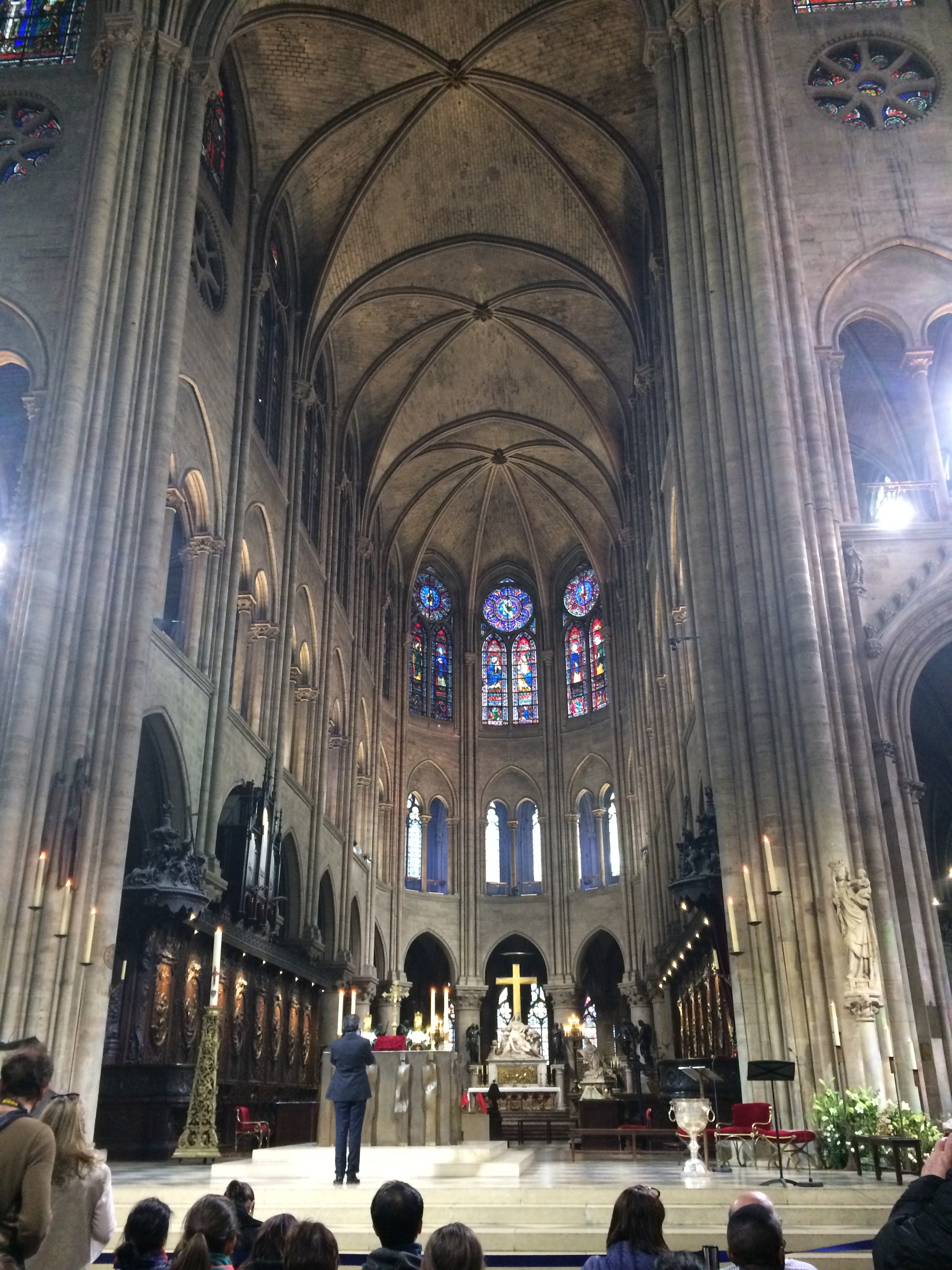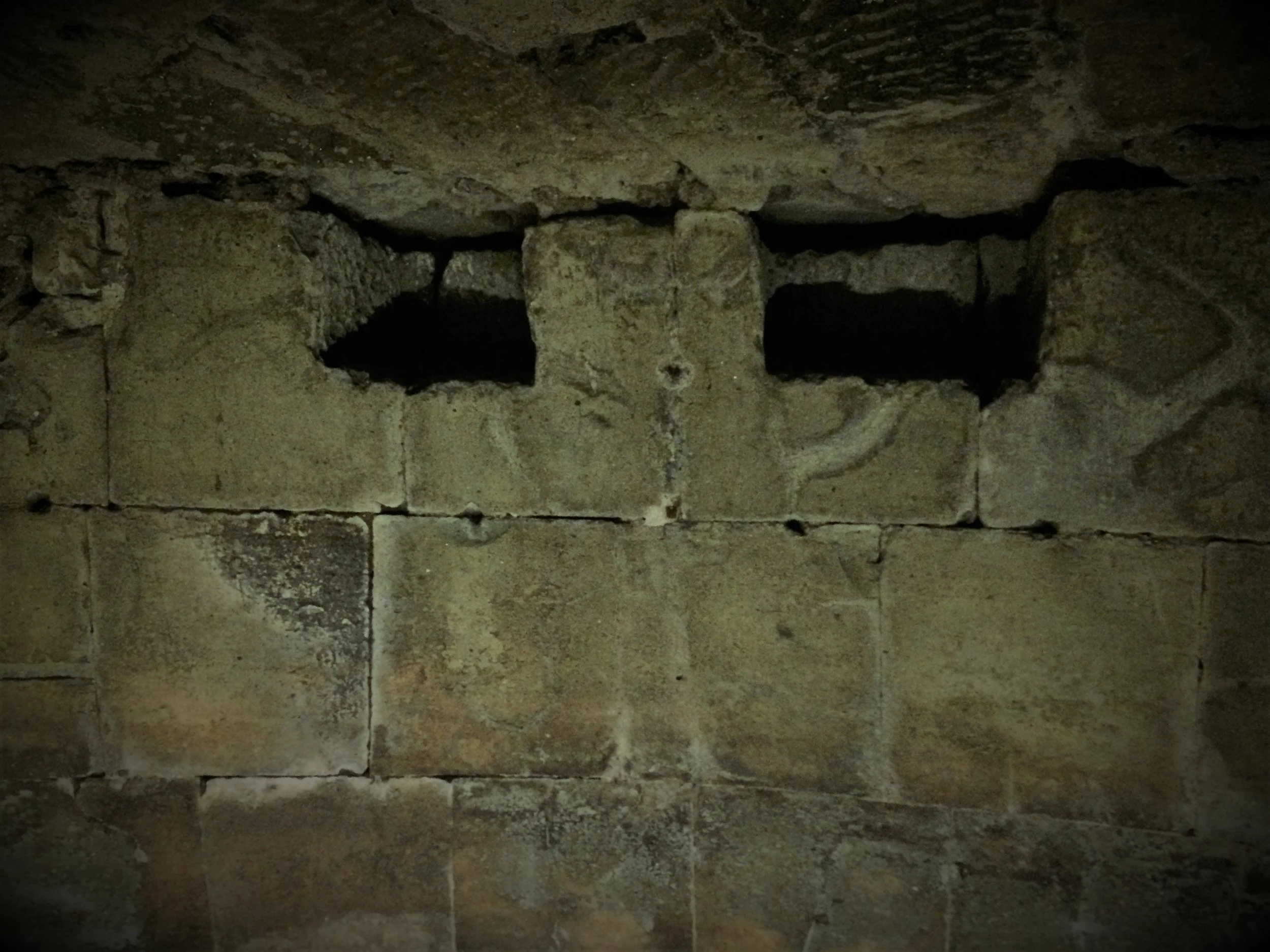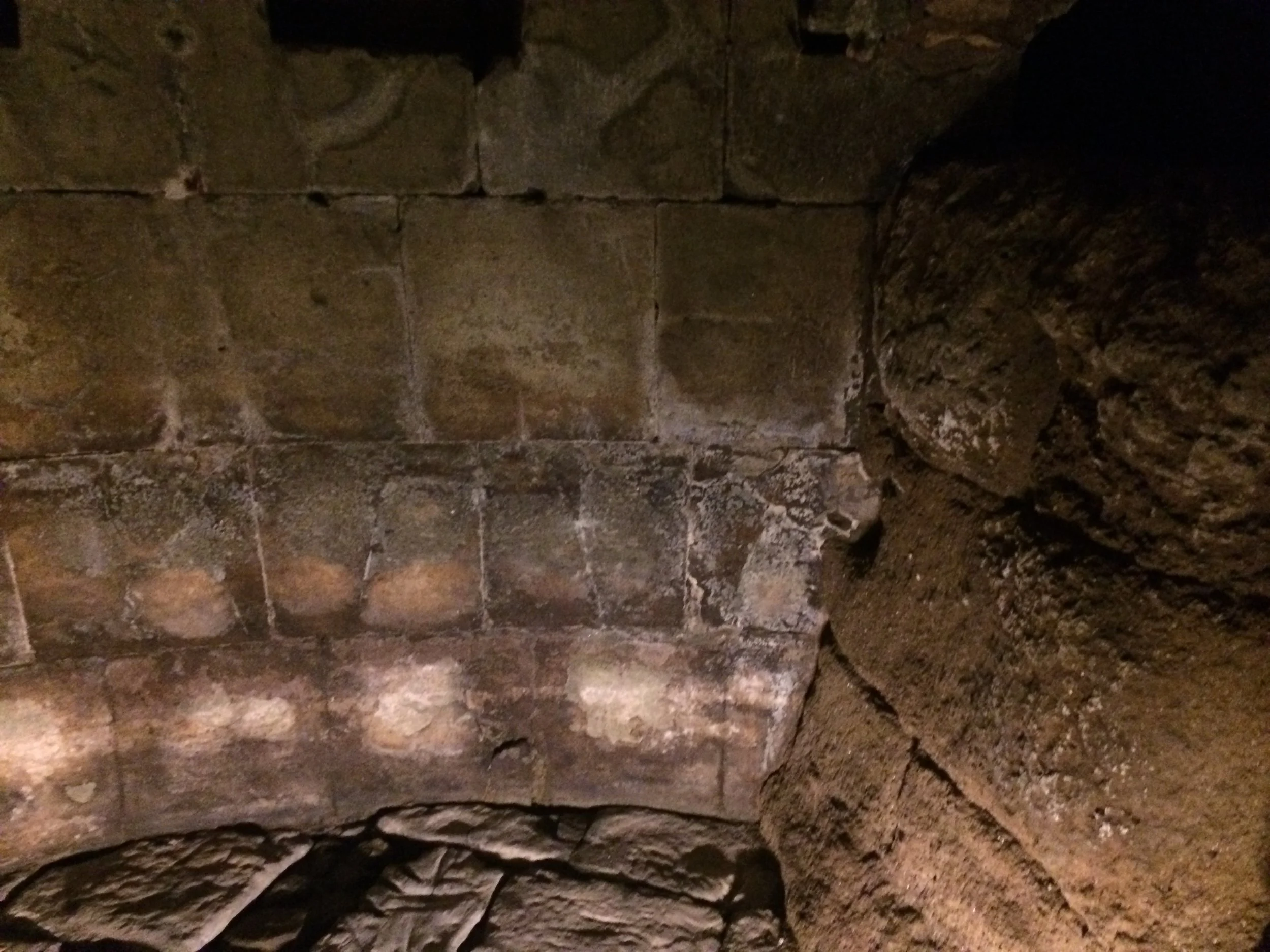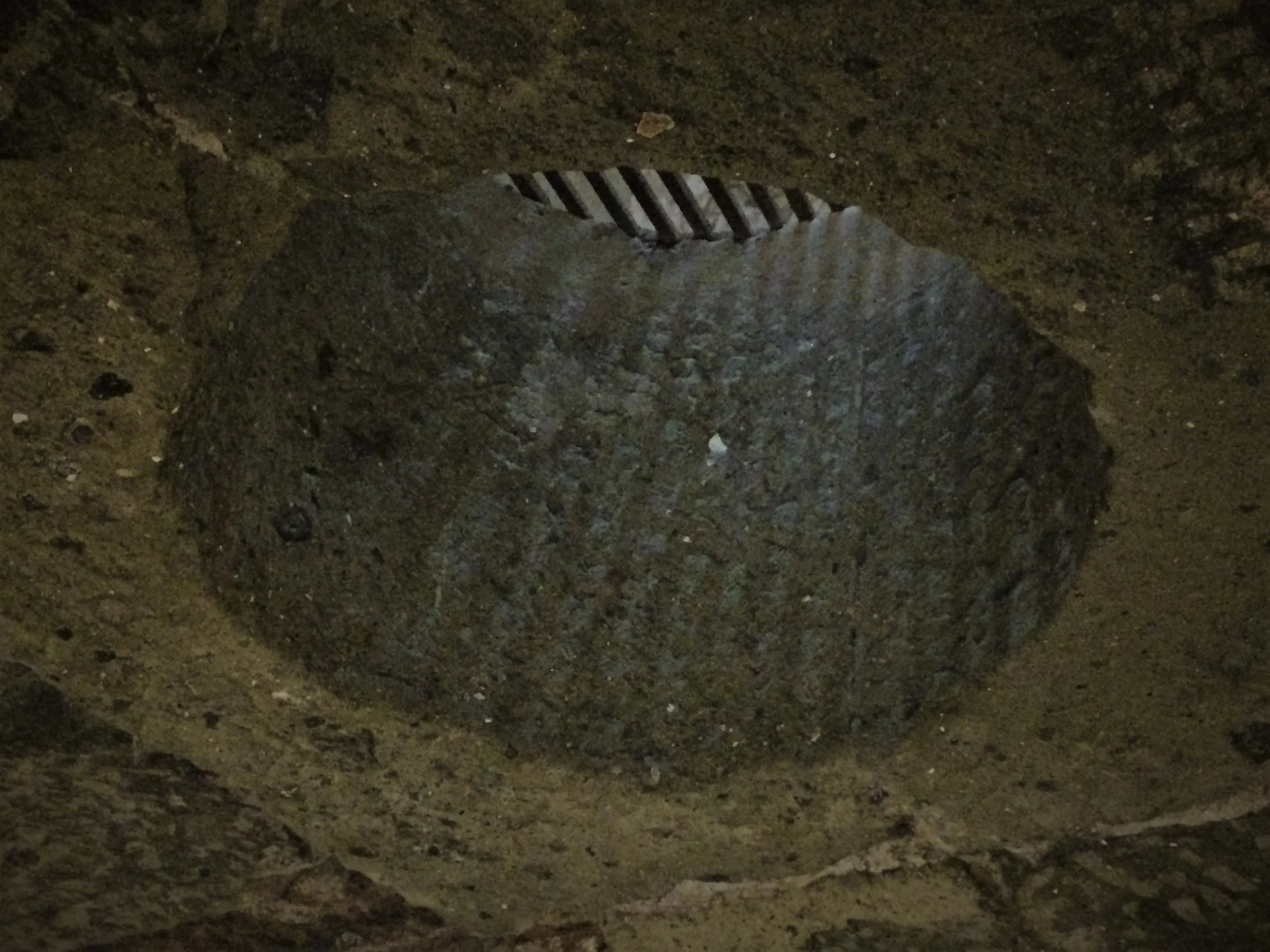Paul's Last Prison & What Happens When We Die
Notre Dame
This trip will soon be over. Too soon! We have seen so much beauty and a lot of pain as we've traveled. On our flight from Zimbabwe to Rome 2 weeks ago, we had a layover in Addis Ababa, Ethiopia. The airport was primitive, dirty, overcrowded. Close to midnight, we tiredly lined up to board our flight, when a man behind us began to yell. He was in his sixties, perhaps, and was shouting in French and gesticulating to the airline employee we had just passed through. She was tiny, young, startled. She shook her head no at him; he yelled louder, in her face. She stood her ground, though she looked frightened. He hopped in rage, then pulled off his hat and smacked her across the face. All of us in that long crowded line caught our breath, frozen in shock. He rose his arm to hit her again and a large man jumped in between to stop him. The two men began arguing loudly in French.
The scene went on for 15 minutes. When she told the man he was no longer allowed to board the plane, he was even angrier. No security guards came to this employee's defense. Instead, three imposing men, fellow passengers, came to the old man’s defense, surrounding this woman, harassing her, trying to get her to reverse the decision. She didn’t budge. Just before midnight, as we wearily but thankfully stumbled out of this grimy airport, I looked back at her. She looked unbearably weary.
A few days later, in Rome, following the apostle Paul again, I went down into Mamartine Prison, where St. Peter and St. Paul might have been held just before their deaths. I must say “might,” because no one knows for sure, but history and church tradition place them here for reasonable reasons. Even now, when empty, it is a dank, pitch-dark moldy underground cell. Now put 30 dying men in there . . .
Prisoners were dropped into its stony hell through a hole in the floor above. No one survived this prison. It was the holding tank for enemies of the Roman Empire condemned to die. Some were left until they starved to death. Some were strangled. Some were hauled out for public execution. If Paul and Peter were held here, they were pulled from here after who knows how long in its depths?
Both were killed under Nero. Paul was beheaded, most believe. Peter crucified upside down.
Today I am thinking of Paul. I stood alone in that underground prison, used for nearly a thousand years, as long as I could, trying to see, to feel, to understand. But the fuller story is above ground.To get to the cell, prisoners would have walked through or seen the Roman emperor’s palace on next-door Palatine Hill. A place of such luxury, decadence and brutality, we can hardly conceive of it. Historians record that for his famous orgies, he would provide night time illumination outdoors by burning Christians at the stake.
The palace itself is described by an ancient historian, like this:
Its courtyard was so large that a 120-foot colossal statue of the emperor himself stood there; it was so spacious that it had a mile-long triple portico;
In other parts of the house, everything was covered in gold and adorned with jewels and mother-of-pearl; dining rooms with fretted ceilings whose ivory panels could be turned so that flowers or perfumes from pipes were sprinkled down from above; the main hall of the dining rooms was round, and it would turn constantly day and night like the Heavens; there were baths, flowing with seawater and with the sulfur springs of the Albula; when he dedicated this house, that had been completed in this manner, he approved of it only so much as to say that he could finally begin to live like a human being. Suetonius, The Lives of the Caesars
Two men, two lives. Paul the apostle of Jesus Christ ending his days in an underground prison. Emperor Nero, just above and outside the walls of that cell, living in palatial luxury.
One man shackled for delivering healing, liberation and brings eternal life. The other man, through slaves, carry out his most extravagant personal desjres.
One man, compelled by love, delivered hope and life to countless others. The other man, compelled by self-love, delivered death, killing his mother, his two wives and countless others., with special hatred toward Christians.
Both died by the same man’s hand: one ordered the beheading of the other. And the same one, not long after, when his enemies came to capture him, killed himself.
In Corinthians Paul wrote
For Christ’s love compels us, because we are convinced that one died for all, and therefore all died. And he died for all, that those who live should no longer live for themselves but for him who died for them and was raised again.
The day they came for Paul, to haul him out of his cell to the execution block, was he afraid? Did he recant? Listen to the words of his last letter likely written shortly before his death (2 Tim.):
At my first defense, no one came to my support, but everyone deserted me. May it not be held against them. But the Lord stood at my side and gave me strength, so that through me the message might be fully proclaimed and all the Gentiles might hear it. And I was delivered from the lion’s mouth. The Lord will rescue me from every evil attack and will bring me safely to his heavenly kingdom. To him be glory for ever and ever. Amen.
What happened in the moments before the sword came down? I know the Lord stood at his side again. And he was delivered.
I am sober this week. We have to choose, too, whom we will serve and how we will live. Even if we land in a prison with a sword at our neck---and we may, Paul has given us our prayer. I pray it even now:
The Lord will rescue me from every evil attack
and will bring me safely
to his heavenly kingdom.
To him be glory for ever and ever.
Amen.
I will be at the Festival of Faith and Writing in Grand Rapids this week. I think many of you will be there! Please say hello!!













